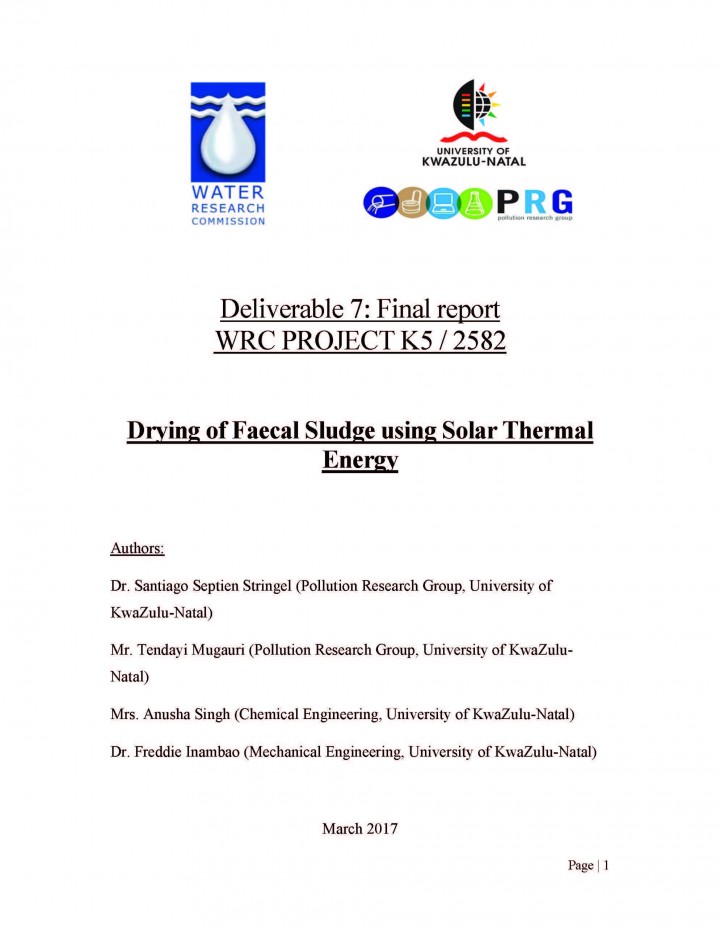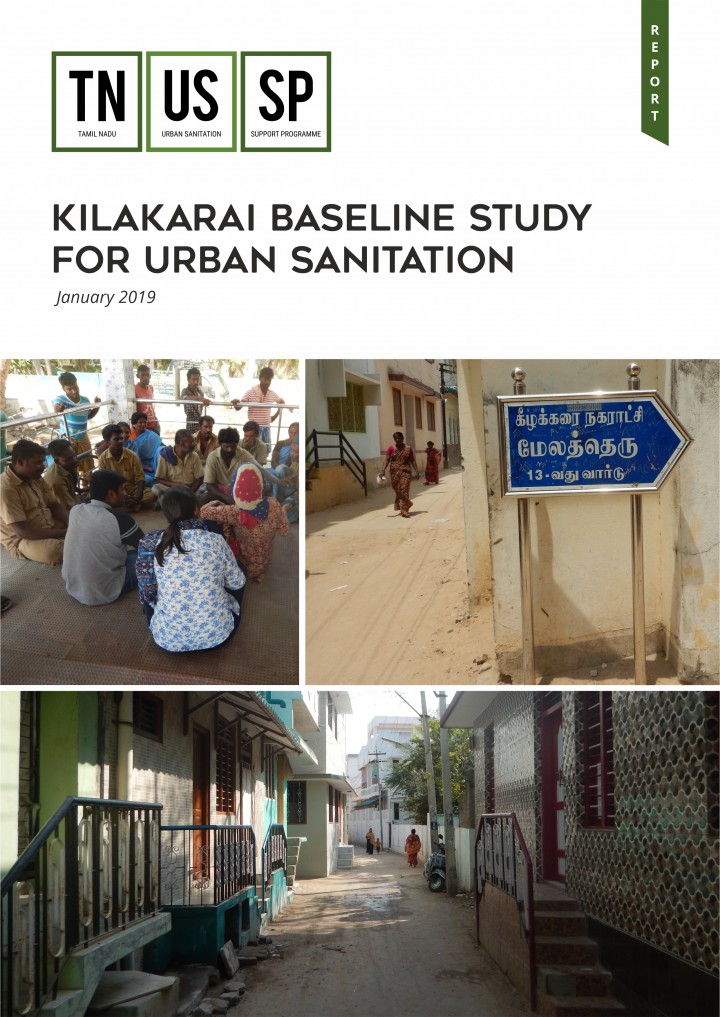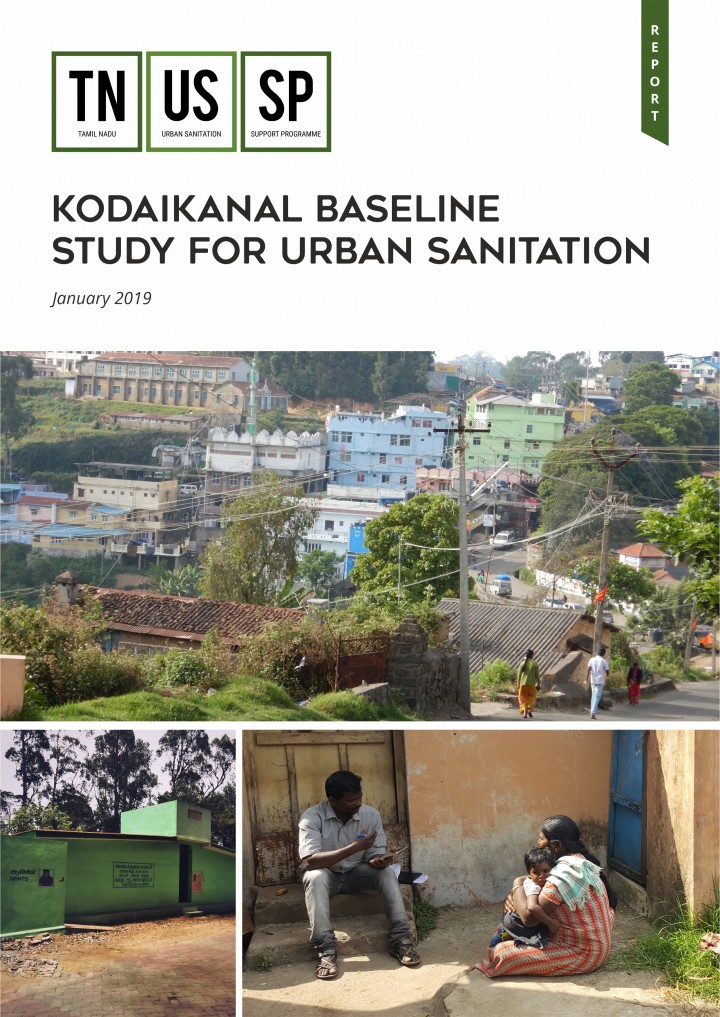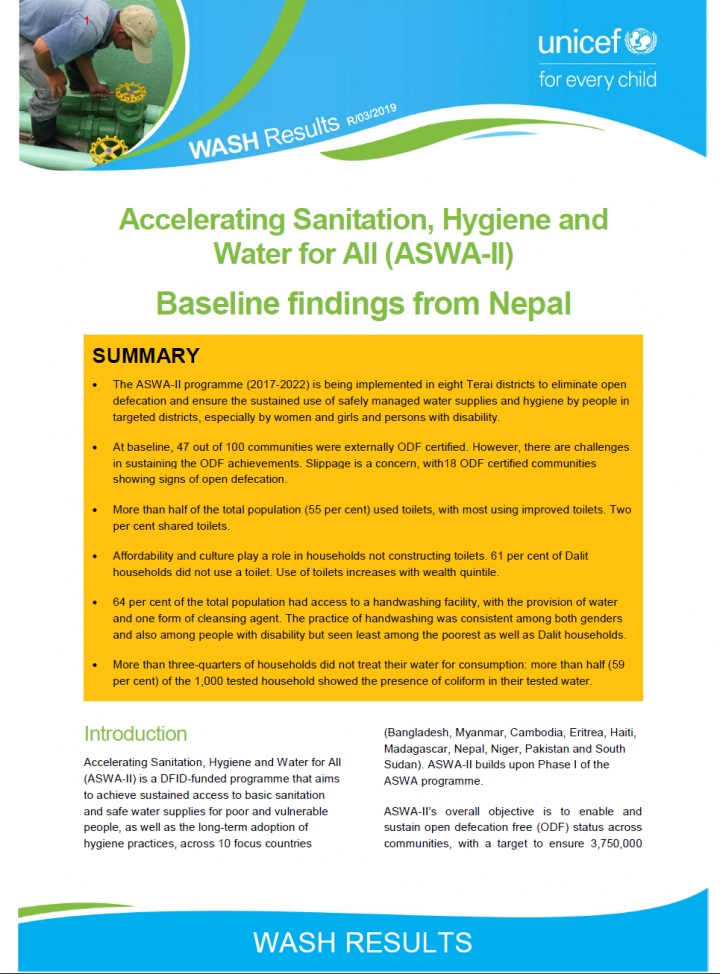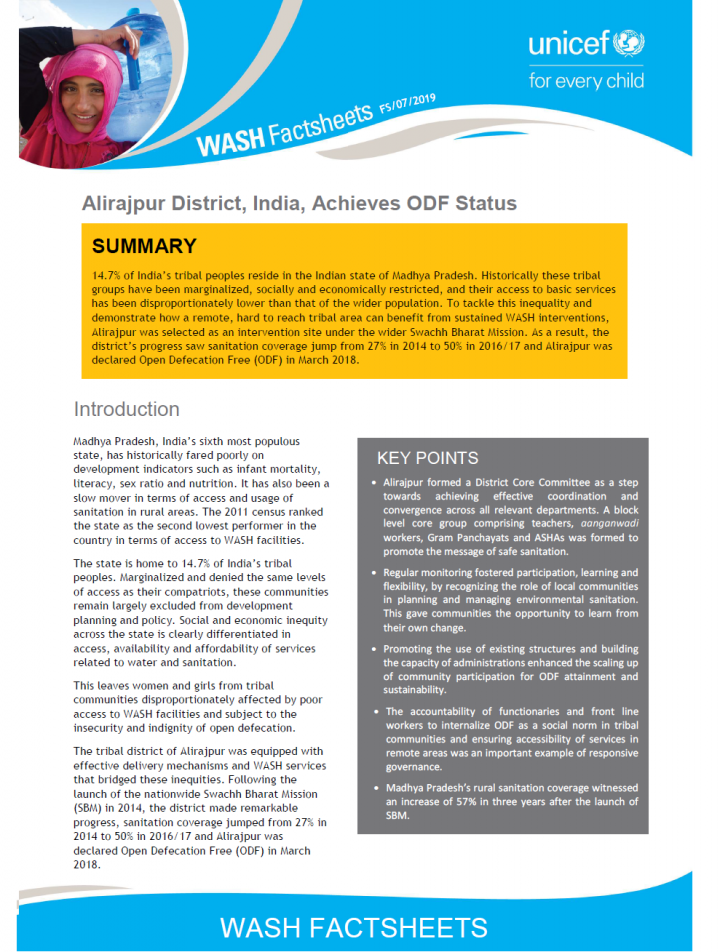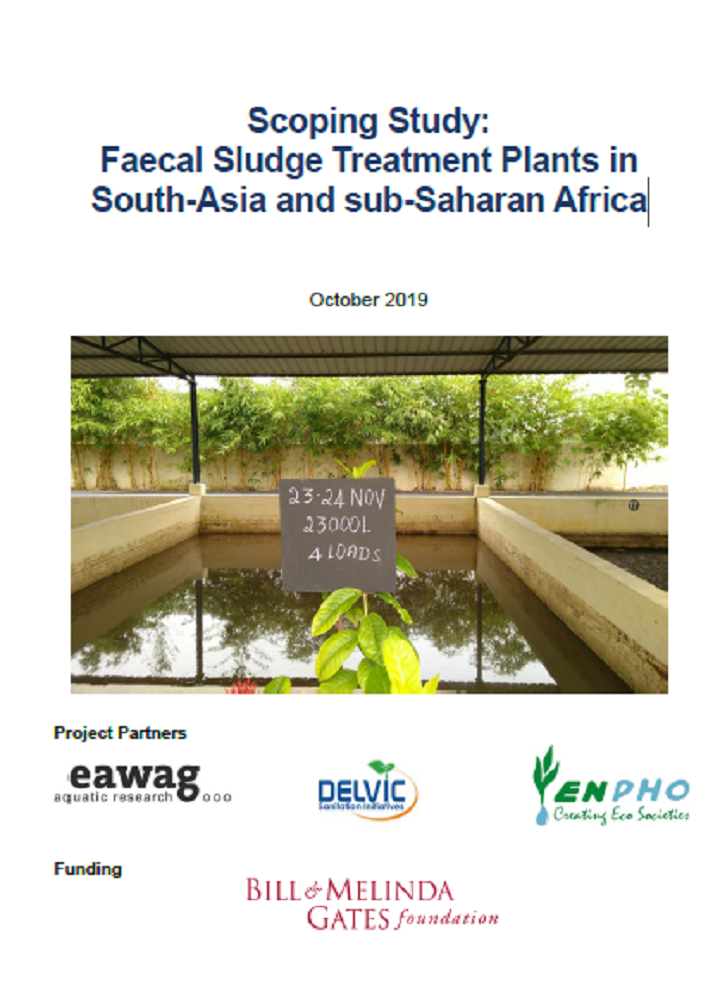Searching for information on Sanitation Workers?
The Sanitation Workers Knowledge + Learning Hub is the best source for all current news, trends, articles and updates on sanitation workers rights around the world.
Reflecting the pace of change, since 2016 CaLP has been reviewing, revising and updating the Glossary on
an annual basis. This process (see flowchart below) is coordinated by the CaLP Secretariat and undertaken
through the CaLP Technical Advisory Group (TAG). The TAG is a group of 25 technical experts in the field
of cash and voucher assistance, drawn from CaLP’s membership. Feedback on …
Appropriate and adequate surface water management is essential to humanitarian response. To date, there has been limited guidance available to practitioners summarized as follows:
Little information beyond basic assessment of flood risk and implications of standing water on a site.
Limited guidance on surface water quality with most of the information focusing on the management of water …
Previous blinded trials of household water treatment interventions in low-income settings have failed to detect a reduction in child diarrhoea. Technological advances have enabled the development of automated in-line chlorine dosers that can disinfect drinking water without electricity, while also allowing users to continue their typical water collection practices. We aimed to …
Solar thermal energy, an abundant and free source of energy in the world, particularly in a major part of developing countries, could supplement heat for drying purposes, leading to the decrease of the operating costs. In the sanitation sector, the use of solar energy for faecal sludge drying has been minimal, with only a few cases. Possible reasons for the low use of solar drying is the lack of …
TNUSSP carried out a baseline study in Kilakarai municipality to understand the current situation of access to sanitation and arrangements made for fecal sludge management in households and establishments. The findings from the study provide an overview of the gaps and challenges across the sanitation chain in Kilakarai in effective implementation and monitoring of septage management.
TNUSSP carried out a baseline study in Kodaikanal municipality to understand the current situation of access to sanitation and arrangements made for fecal sludge management in households and establishments. The findings from the study provide an overview of the gaps and challenges across the sanitation chain in Kodaikanal in effective implementation and monitoring of septage management.
After achieving the target of universal coverage of individual household toilet, Swachh Bharat Mission Gramin is working towards addressing the menace of solid and liquid waste management (SLWM) to ensure clean and healthy villages.
Government of Chhattisgarh has taken a sustainable approach to address solid and liquid waste in the state. SBM-G has adopted decentralized processes for waste …
The aim of this document is to explain the field level procedures in cleaning septictanks and the safe disposal of sludge. There are very few less than 4 major Fecal Sludge Treatment Plants in the state of Kerala. The floods of 2018due to south west monsoon, caused a very great havoc in 13 districts of Kerala by inundating all the wells and septic tanks. The flood water mixed with faecal sludge …
This manual begins with the status of sanitation in the state and key observations regarding sanitation followed by the concept, government guidelines and methodology for major stages of ODF are discussed in detail. Later, the components of sustainable sanitation, maintenance and repairs of sanitation facilities, alternative finance options, entrepreneurship development opportunities and …
The training focuses on developing capacities of all the stakeholders including operators, service providers, Municipal Corporation, elected representatives etc.
This training aims at conveying the key concepts and how to do the operation and maintenance of community toilets and management of feacal sludge in an effective manner, what are the basic non-negotiable elements versus want are the …
This ten year sanitation strategy for rural areas in India, prepared by the Department of Drinking Water and Sanitation (DDWS), Ministry of Jal Shakti, Government of India, in consultation with State Governments and other stakeholders, lays down the framework for achieving this long term vision. The strategy is intended to guide, local governments, policy makers, implementers and all relevant …
The Government of India (GoI) has launched an iniative to strengthen the capacity of Panchayati Raj Institutions (PRIs) to ensure the sanitaton gains achieved under the Swachh Bharat Mission (Grameen) are sustained. The initiative includes ODF status of communites, taking up of an open defecation free plus (ODF Plus) agenda and improving access to safe and secure water supply through the Jal …
Wayanad's pilot project on faecal sludge management (FSM) has encouraged risk-informed programming, innovation, in the sanitation sector. A unique waste management system has been commissioned in Wayanad that uses vermifiltration (use of worms) to process waste and turn it into compost and useable greywater.
The Government of Kerala became open defecation free in 2016, allowing it to tackle the next challenge on the sanitation cycle - Faecal Sludge management. With funding support and supervision from UNICEF, and technical implementation by PriMove and TBF Environmental Solutions, Wayanad district constructed a Faecal Sludge Treatment Plant (FSTP) that uses earthworms to filter through the waste and …
This document draws on SuSanA’s resource base of materials and information contributed by over 10,000 members. Its authors have also conducted secondary research. It represents a consultative process with the experts and other prominent authorities in the sector. At the time of publishing, the document represented the best possible advice based on the data and experience of the group.
In peri-urban areas and small and medium towns, several studies have found women have problems finding safe and convenient toilets and drinking water. The toilets provided in resettlement colonies and tenements are often inadequate, unsafe and in poor condition. One of the main reasons for bad water and sanitation facilities in these resettlement areas is that women are usually not part of the …
• The ASWA-II programme (2017-2022) is being implemented in eight Terai districts to eliminate open defecation and ensure the sustained use of safely managed water supplies and hygiene by people in targeted districts, especially by women and girls and persons with disability.
• At baseline, 47 out of 100 communities were externally ODF certified. However, there are challenges in sustaining …
14.7% of India’s tribal peoples reside in the Indian state of Madhya Pradesh. Historically these tribal groups have been marginalized, socially and economically restricted, and their access to basic services has been disproportionately lower than that of the wider population. To tackle this inequality and demonstrate how a remote, hard to reach tribal area can benefit from sustained WASH …
Summary Guidelines:
German Development Cooperation implemented by GIZ supported the Ugandan Ministry of Water and Environment in developing the National Guidelines for the planning, implementation, O&M and monitoring of small FSTPs (up to about 5,000 m³/a). It is expected that these Guidelines will contribute to enhance the cost efficiency and sustainability of FSTP investments by ensuring …
WASH in Schools (WinS) is a key element of universal access to both Education for All and WASH for All as defined in the Sustainable Development Goals (SDGs). Schools are important settings to provide environments where children learn and acquire essential hygiene skills for life; and where their health growth and overall development thrive in dignity.
Worldwide over the last years, a shift has taken place in the acceptance of faecal sludge management (FSM). It is now considered by many to be a viable solution alongside sewer-based systems in achieving citywide inclusive sanitation, and faecal sludge treatment plants (FSTPs) are starting to be constructed throughout Asia and Africa. For example, more than 40 FSTPs started operation in India and …
Access to functional and clean group washing facilities in schools allow for WASH activities for a larger number of children at various times throughout the day. Group washing facilities, which need to be water-saving, are designed to enable both group handwashing and individual handwashing. Based on this there is a demand for durable and scalable infrastructure which are long-lasting, low cost …
There is growing global momentum around addressing menstruation as an important health, education and gender equality issue. However, a critical barrier to making progress on addressing menstruation and the range of girls’ needs around this issue, is the lack of adequate validated measures related to measuring menstruation within global health and development. Measures are most needed that are …




